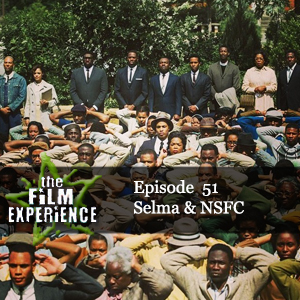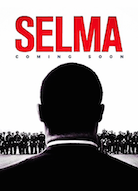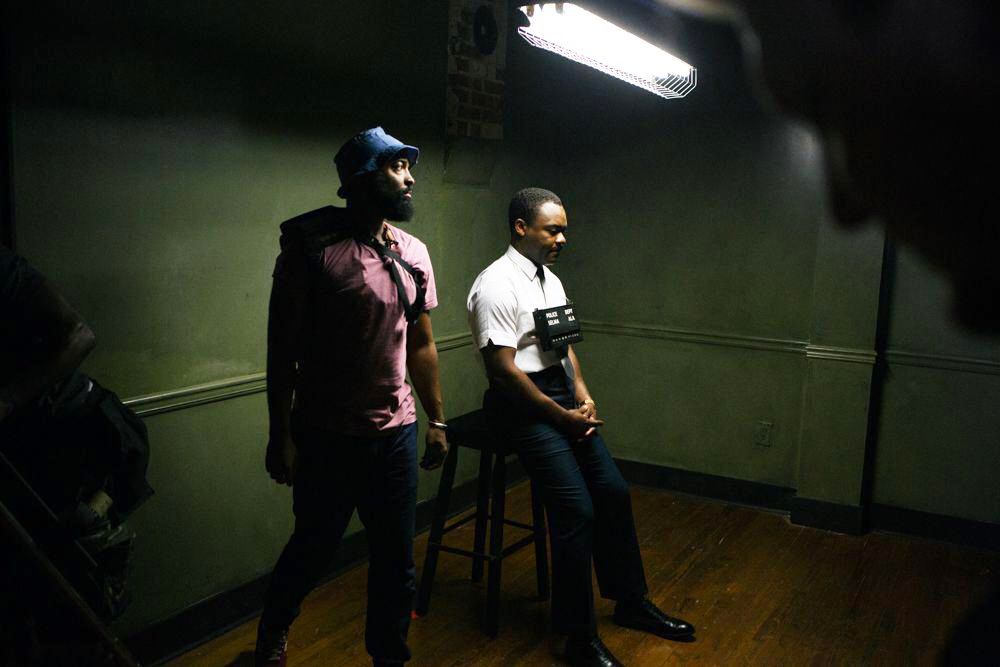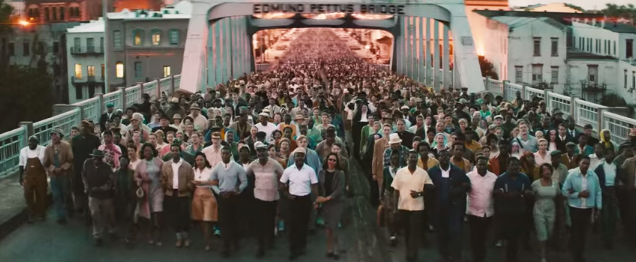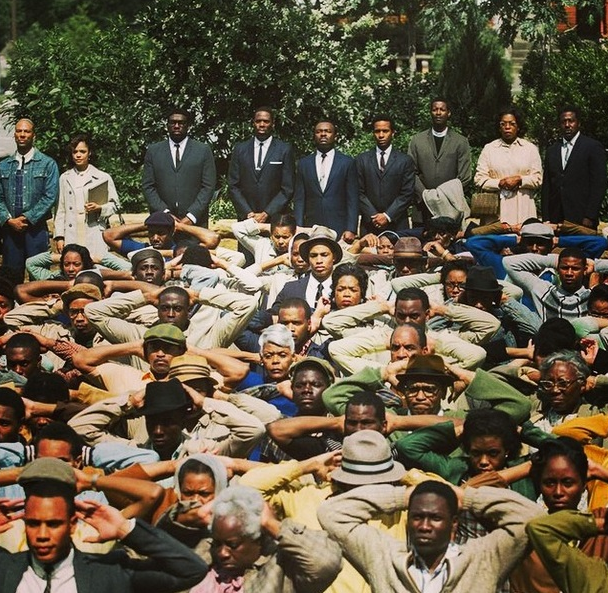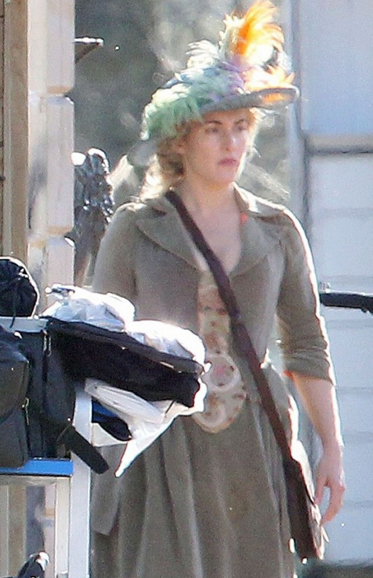Selma Luncheon was a "Glory"
 Wednesday, January 7, 2015 at 1:36PM
Wednesday, January 7, 2015 at 1:36PM In the last few days of Oscar voting (balloting ends tomorrow at 5 PM PST) campaigns have been running at full bore with events for numerous films ongoing here in NYC were TFE is based. None of them have been greater than the Selma luncheon yesterday which was a beauty from start to finish. The luminaries really turned out for this one: several former Oscar nominees and winners, famous TV journalists, and Harry Belafonte himself, who we recently honored here to coincide with his Jean Hersholt Huminatarian Award and who was so instrumental in the events of Selma and the Civil Rights movement of the 1960s.
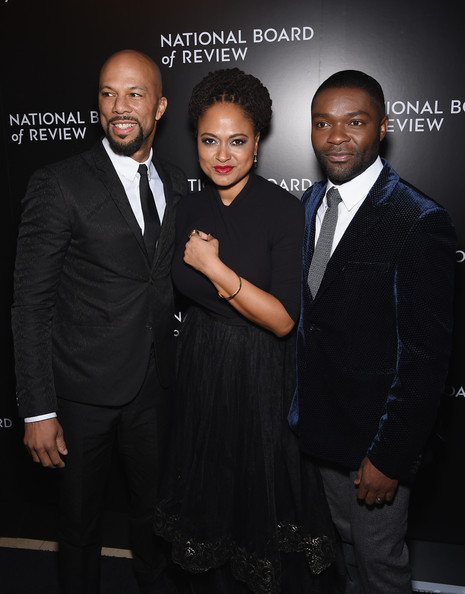 Common, Ava DuVernay, and David Oyelowo at the NBR gala later that evening
Common, Ava DuVernay, and David Oyelowo at the NBR gala later that evening
I worried at first during the opening speech (my apologies but I forget the name of the man who introduced the event) that the righteous politics and the "importance" button were being pushed with too much force. I should explain: Selma is indeed tremendously important and a political drama. But it's also an extremely good movie and, all too often, the quality of actual movies, gets lost in the Oscar race. Which is to say that a movies execution, and not its concept of subject matter, is what awards should be based on. Anybody can address an important topic or theme or historical event, only visionary talented artists can render it as beautifully and potently as Ava DuVernay has.
My worries were unfounded. Soon all hint of stridency disappeared once the filmmaking team was speaking and humor, humility, tenderness, empathy, universality were also flooding the room. David Oyelowo, interviewed by Oprah's bestie Gale, told a wonderfully moving and funny story wherein he imitated his father's heavy Nigerian accent and shock and glee reacting to Brad Pitt's recent sing-a-long of "Oyelowo"
Our name is on the map now!
...and also his father's reaction to him playing the King of England on stage. His father had moved to the UK decades earlier when racism was prevalent.
I cannot believe that they let a black man play the Kind of England. And that black man is my son.
Recent attacks on Selma's accuracy were addressed both subtly and pointedly. Famous former New York Times reporter Gay Talese, who turns 83 next month, was interviewed about his first screening of the film. He had reported from Selma during the mayhem of that "Bloody Sunday" that is so horrifically dramatized in the film. He admitted that he had sat down to screen the film with considerable skepticism and was stunned that this woman who wasn't even there had captured it just as he remembered it. He urged those who were interested to watch the actual footage that the networks displayed in a moment that he said changed journalism and the country forever.
I loved Ava DuVernay, opening speech.
If you believe in justice and dignity our effort is you. What we tried to do is deconstruct heroes. No one is all saint. No one is all sinner. There are grey areas inbetween: it's called being a human being. And so what we try to do is unencase people from marble, take them out of the pages of a history book, allow them to breathe and become complex. For us to question who they are debate who tehy are. That was our intention and in doing so illuminate this beautiful time, a time that really changed this country. The fact that we can all be in this room together, celebrating as we are as equals, is the direct result of the events we chronicle.
She also addressed, with some noticeable sadness, the complaints that she had not depicted LBJ correctly and reminded people that it's a distraction from the resonance of the film: that LBJ's great legacy, the Civil Rights Voting Act has recently been dismantled. That's what people should be angry about.
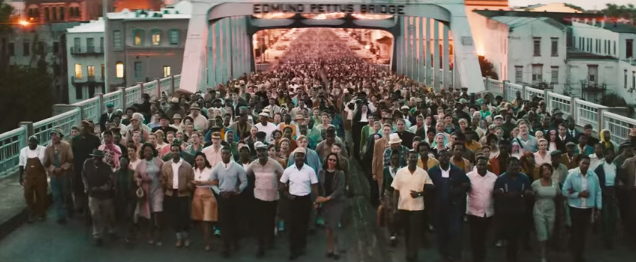
But for all the fine speeches, the highlight of the event was most definitely a live performance of the Original Song contender "Glory". Common's humble opening speech set the inspiring tone. His stillness and hand gestures as he rapped with John Legend's passionate piano and voice on the chorus combined with the sonic depth that the back-up singers and strings behind them supplied made for an exquisite if ultra-short concert (just one song!).
I recorded it for you and saved it at the highest quality my phone could handle and you can listen right here. Common's speech is the first two minutes. The song begins thereafter. This won't approximate how moving it was to be there (it's only the third time they've performed the song live) but the song is too beautiful not to share.



